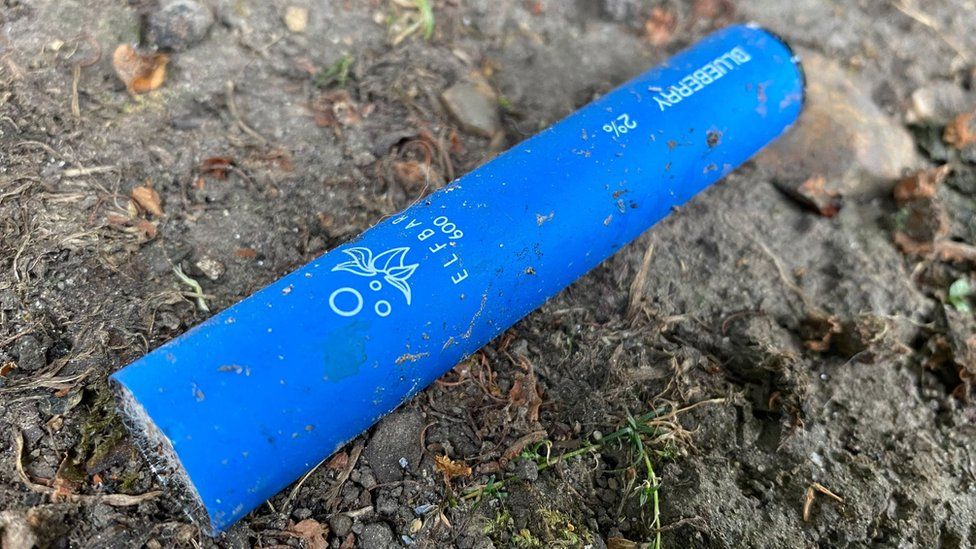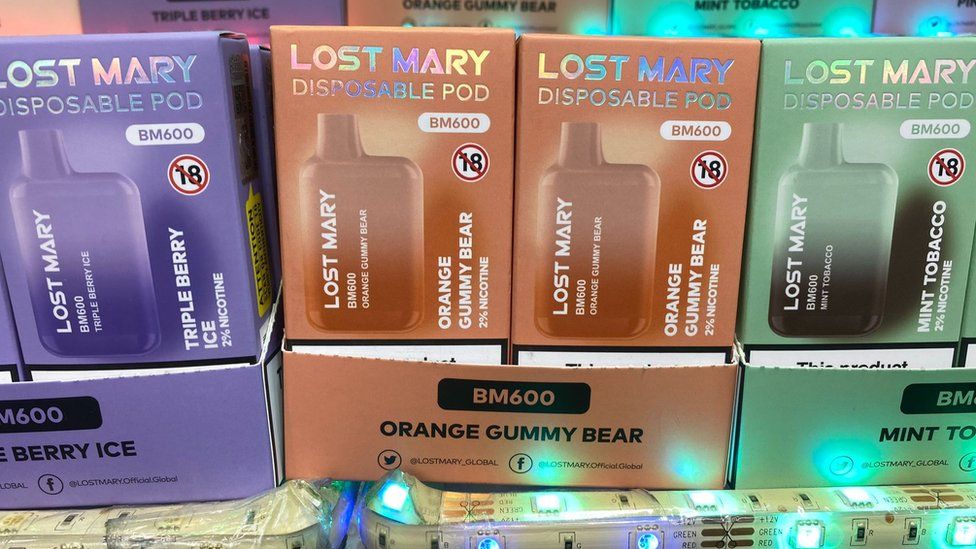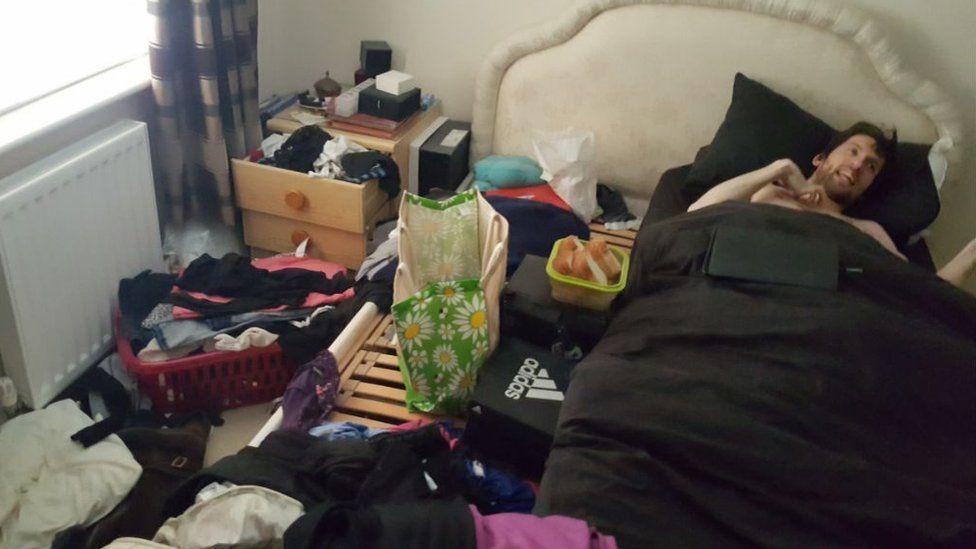
Disposable vapes cause litter problems, are a fire hazard and appeal too strongly to children, according to local councils in England and Wales.
The Local Government Association has called for them to be banned by 2024.
Single use varieties have surged in popularity in recent years, driven by Chinese brands such as Elfbar and Lost Mary.
But the UK Vaping Industry Association says they help smokers quit and can be recycled.
Disposables offers a few hundred puffs of nicotine-containing vapour, often with an added flavour of fruit or sweets, in bright plastic packaging – which are thrown away when empty.
They are easier to use than conventional vapes, or e-cigarettes, which need to be refilled with pods or liquid.
Disposable ones also contain a small lithium battery, which can increase in temperature when crushed, causing fires in bin lorries, the Local Government Association (LGA) warns.
They are difficult to recycle without specialist equipment, and with 1.3 million thrown away each week, they are a litter problem too, the LGA says.
Figures from research firm NielsenIQ suggest the problem could be even bigger than that. It says nearly 300m e-cigarettes (disposable and otherwise) were sold in the UK over the last year.
Elfbar and Lost Mary, which are made by the same Chinese firm, Shenzhen Imiracle Technology Co, made up more than half that number. That is an increase of more than four times compared to their sales the year before.
Councillor David Fothergill, chairman of the LGA’s Community Wellbeing Board, said: “Disposable vapes are fundamentally flawed in their design and inherently unsustainable products, meaning an outright ban will prove more effective than attempts to recycle more vapes.”
Councils are not against vaping altogether as they believe vapes are less harmful than tobacco and can help smokers to quit.
John Dunne, director general of the UK Vaping Industry Association, said that the “low price, accessibility and ease of use” of disposable products had helped bring UK smoking rates to an "all-time low”.
“The vape industry is working hard to minimise its environmental impact, but this is mainly a consumer education issue about how to dispose of used vapes, which overall are evidenced to be highly recyclable," he said.
A blanket ban could see “potentially deadly” black-market products flood the UK, Mr Dunne warned.

Councils are also worried that disposable varities with “fruity and bubble gum flavours, and colourful child-friendly packaging” could appeal to under-age vapers, and called for restrictions on their display and marketing, similar to those used for conventional tobacco.
The anti-smoking charity ASH said it did not support a ban, as it would "turbo-charge" illegal sales, increasing the risk that children would be able to buy them. It favours higher taxes on disposables and stronger controls on import and sales, deputy chief executive Hazel Cheeseman said.
A government spokesperson said it was also concerned about the use of vaping products, particularly among young people. Earlier this year it launched a consultation looking into the environmental and health impacts of vaping, and is considering responses.
“We strongly encourage all consumers to consider the environment and dispose of electrical waste, including by making use of take-back schemes at participating retailers,” the spokesperson said.
In Scotland, Lorna Slater, Minister for Circular Economy, said in June that single use vapes had become a "big problem - for our environment, local communities and young people,” and promised to announce new plans in the autumn.
Elfbar did not provide a comment for this article. It has previously told the BBC it recognised the fast growth of the vape market has had "environmental implications" and said it plans to introduce recycling boxes for retailers to collect used disposables.
Related Topics
https://news.google.com/rss/articles/CBMiLGh0dHBzOi8vd3d3LmJiYy5jby51ay9uZXdzL2J1c2luZXNzLTY2MjA0ODUz0gEwaHR0cHM6Ly93d3cuYmJjLmNvLnVrL25ld3MvYnVzaW5lc3MtNjYyMDQ4NTMuYW1w?oc=5
2023-07-15 00:26:21Z
2237741281










